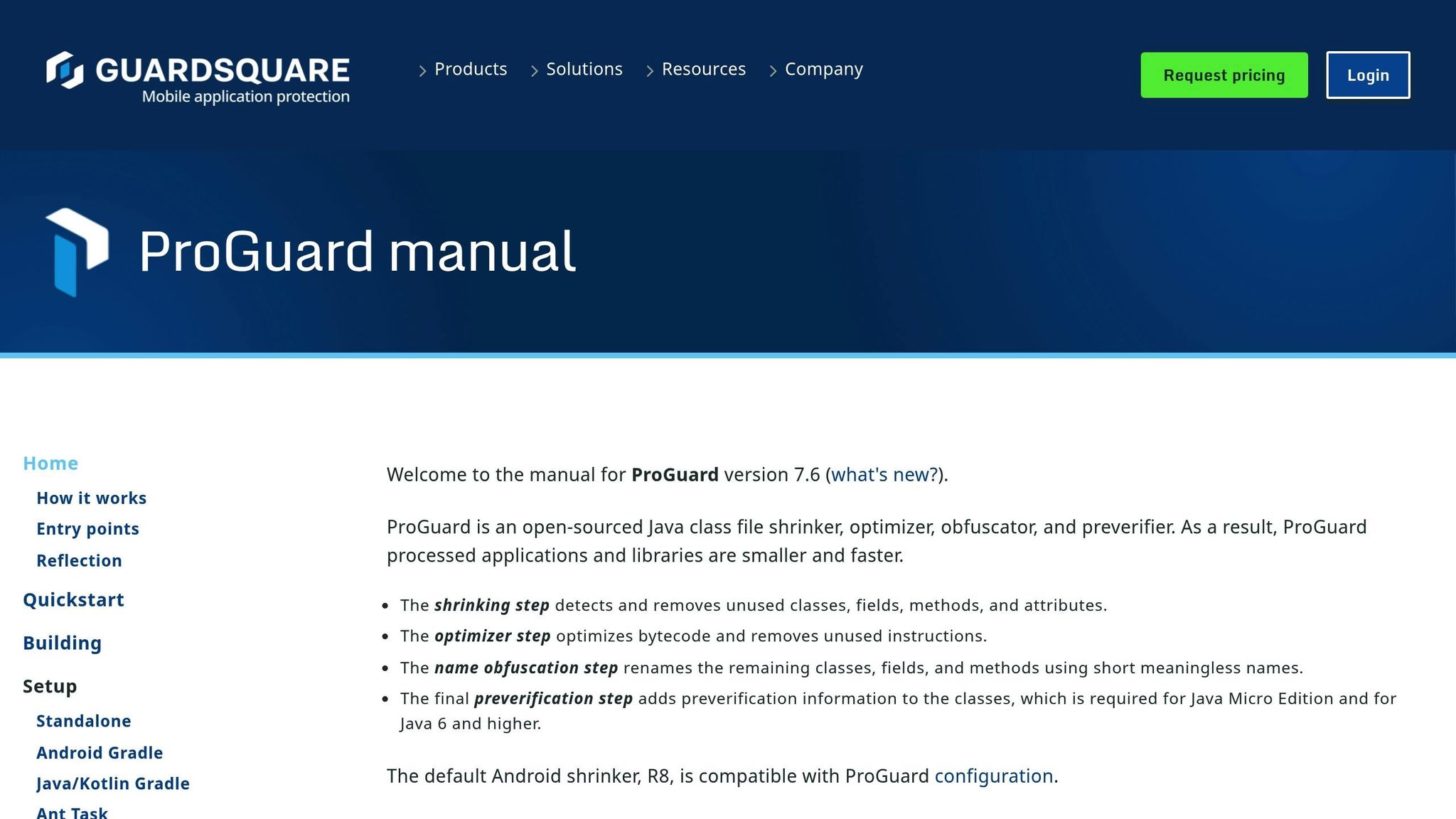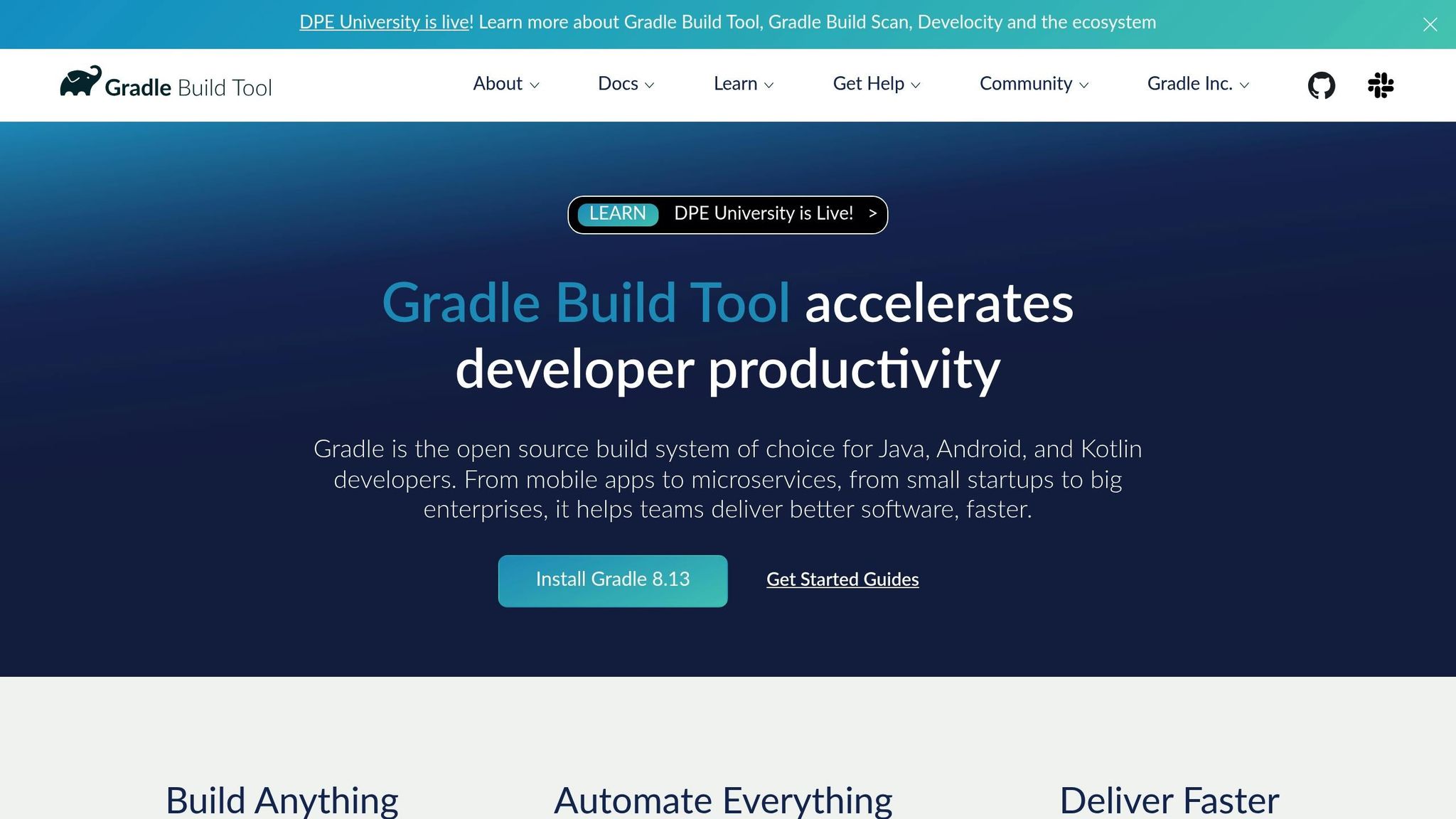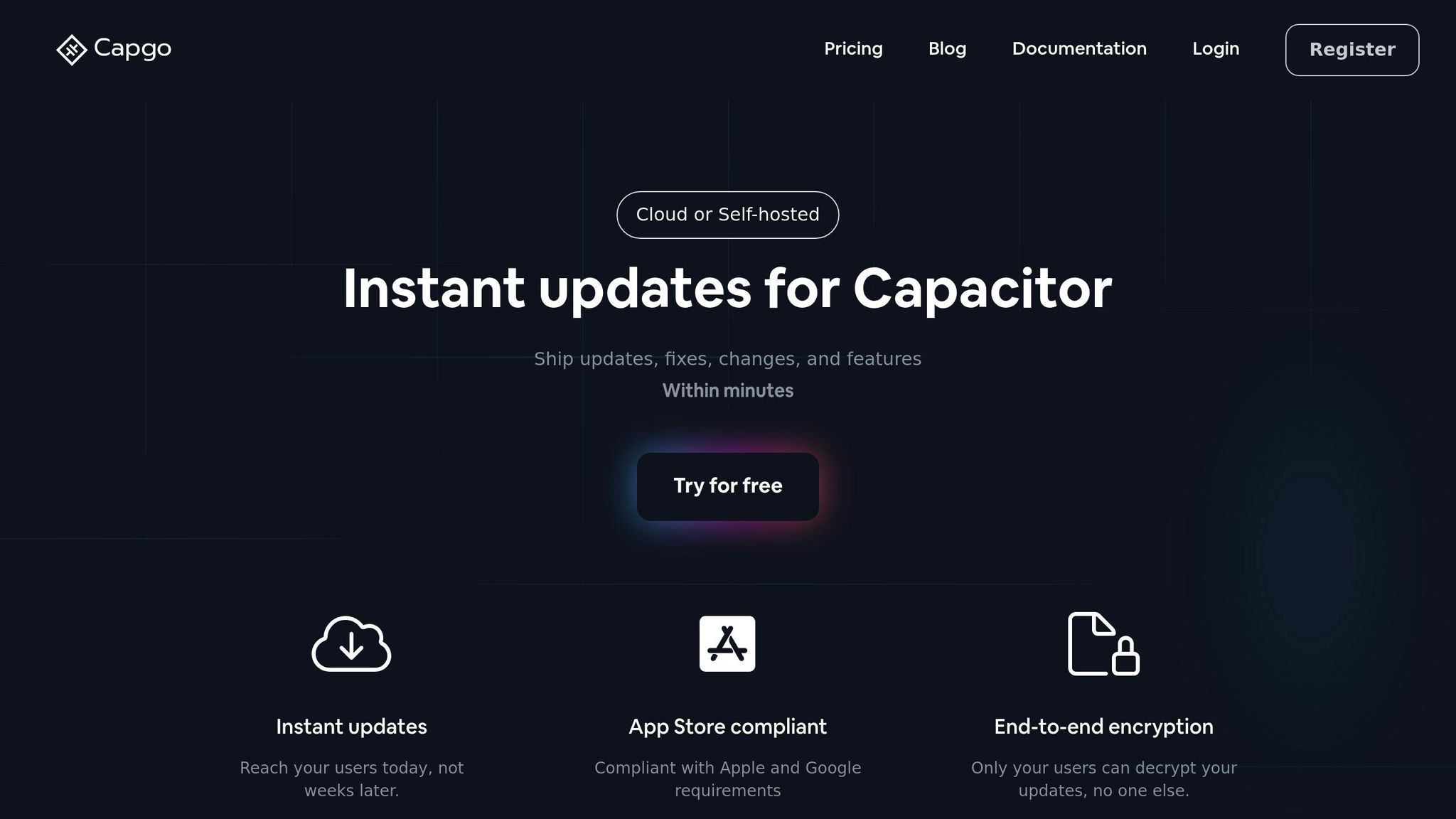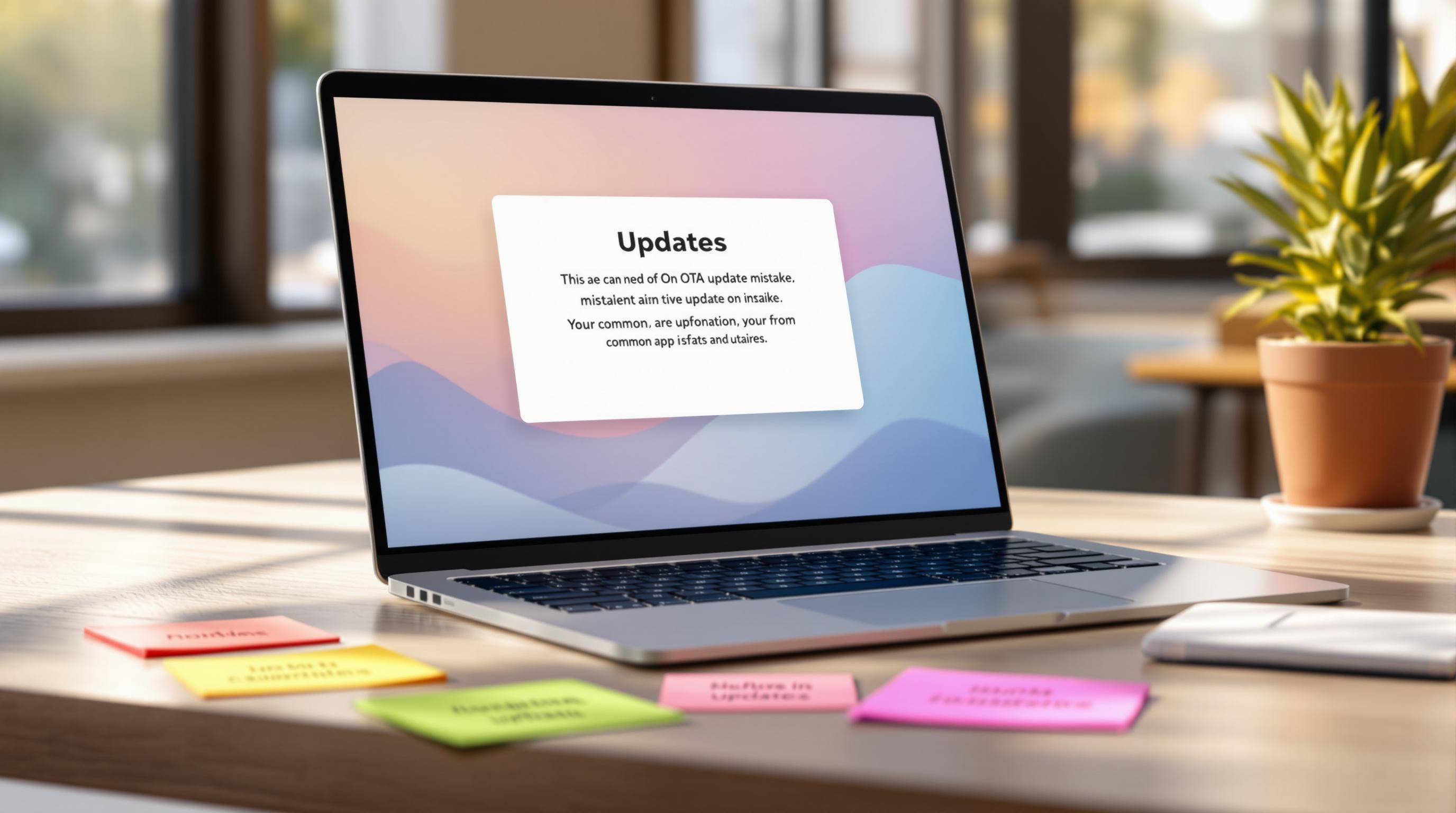Struggling with Android build errors in Capacitor? These errors often stem from misconfigured files, dependency conflicts, or ProGuard issues. Fixing them quickly is essential to keep your app running smoothly. Here’s a quick breakdown of common issues and how to resolve them:
- Setup Issues: Check
AndroidManifest.xml,capacitor.config.json, and Gradle settings for mismatches in SDK versions, permissions, orminSdkVersion. - Dependency Conflicts: Align versions of Capacitor core, plugins, and native libraries. Use tools like
npx cap doctorto spot mismatches. - ProGuard Problems: Add proper rules to prevent obfuscation errors during release builds.
Key Tip: Use error logs in Android Studio to pinpoint the root cause and focus on the first error in the stack trace. Tools like Capgo can help you deploy fixes instantly without waiting for app store reviews.
Quick Fix Example:
-
Update dependencies in
package.json:{"@capacitor/core": "5.5.0","@capacitor/android": "5.5.0","@capacitor/camera": "5.0.7"} -
Add Jetifier for compatibility:
android.useAndroidX=trueandroid.enableJetifier=true -
Add ProGuard rules:
-keep class com.getcapacitor.** { *; }-dontwarn com.google.android.gms.**
Need faster fixes? Capgo allows you to push updates instantly, bypassing app store delays. It’s a great way to keep your app stable and users happy.
Ultimate Guide to Debugging Ionic Apps on Android and iOS …
Main Android Build Errors
Building Android apps with Capacitor can sometimes lead to errors due to configuration issues or dependency mismatches. Below, we break down the most common Android build errors and how to address them.
Setup and Config Errors
These errors often arise from misconfigured files like AndroidManifest.xml or capacitor.config.json. Common issues include:
- Missing Permissions: If required Android permissions aren’t declared in
AndroidManifest.xml, the build will fail. - SDK Version Mismatches: The
targetSdkVersionmust align with Capacitor’s recommended values to avoid errors. - Gradle Settings: An incorrect
distributionUrlingradle-wrapper.propertiescan cause build failures. - Incorrect minSdkVersion: Setting an inappropriate
minSdkVersioncan lead to compatibility issues. For example, your configuration might look like this:
android { defaultConfig { minSdkVersion 22 targetSdkVersion 33 }}Package Version Conflicts
Version mismatches between dependencies can also cause build errors. Common scenarios include:
- Native Dependencies: Discrepancies between Capacitor core and native libraries.
- Plugin Compatibility: Using mismatched Capacitor plugin versions.
- Gradle Module Conflicts: Duplicate module declarations in
build.gradlefiles.
Here’s an example of a proper dependency configuration:
{ "dependencies": { "@capacitor/core": "5.5.0", "@capacitor/android": "5.5.0", "@capacitor/camera": "5.0.7" }}ProGuard Setup Problems

ProGuard, used in release builds, can introduce additional issues:
- Missing Keep Rules: Important classes may be obfuscated, causing runtime errors.
- Reflection Errors: Classes accessed via reflection might not be handled properly.
- Plugin Conflicts: ProGuard rules from different plugins can clash.
To address these problems, you can add the following ProGuard rules:
-keep class com.getcapacitor.** { *; }-keep class org.apache.cordova.* { *; }-dontwarn com.google.android.gms.**Finding Error Sources
Pinpointing Android build errors in Capacitor requires a step-by-step troubleshooting approach. By combining configuration reviews and log analysis, you can identify and address issues effectively.
Reading Error Logs
Android Studio and Gradle offer detailed error logs to help diagnose problems:
- Error Stack Trace: Focus on the first error in the stack trace - this is usually the root cause. Later errors often result from this initial issue.
- Build Output Window: In Android Studio, errors are highlighted in red in the Build Output window. Look for terms like “FAILURE” or “ERROR” to quickly locate key issues.
Here’s an example of a typical error message:
> Task :app:processDebugResources FAILED
> FAILURE: Build failed with an exception.
* What went wrong:Execution failed for task ':app:processDebugResources'.
> Android resource linking failedChecking Config Files
Ensuring correct configuration is key to successful builds. Pay close attention to these files:
- capacitor.config.json: Verify keystore settings, not just the file’s location but also its validity.
- build.gradle: Check that all required plugins and dependency versions are correctly declared. For instance:
dependencies { implementation "com.android.support:appcompat-v7:28.0.0" implementation "com.getcapacitor:core:5.5.0"}Understanding Gradle Outputs

Use ./gradlew app:dependencies and enable build scans to uncover dependency conflicts or script issues. These tools provide a detailed view of your project’s setup.
“We practice agile development and @Capgo is mission-critical in delivering continuously to our users!” - Rodrigo Mantica [1]
Some common problems include:
- Dependency version mismatches
- Incorrect or missing plugin configurations
- Resource compilation failures
- Issues with ProGuard rules
Error Solutions
This section focuses on resolving version mismatches, dependency conflicts, and ProGuard misconfigurations.
Version Updates
Make sure all dependency versions align to avoid build instability:
-
Check Capacitor Core Version
Run the following command to spot version mismatches between@capacitor/core,@capacitor/cli, and platform packages:Terminal window npx cap doctor -
Update Native Plugins
Verify yourpackage.jsonincludes the correct versions. For example:{"dependencies": {"@capacitor/core": "5.5.0","@capacitor/android": "5.5.0","@capacitor/camera": "5.0.7"}}If updating versions doesn’t work, you may need to resolve dependency mismatches manually.
Fixing Package Conflicts
Package conflicts often occur when using a mix of AndroidX and legacy Support Library dependencies. Here’s how to handle them:
-
Enable Jetifier
Add these lines to yourgradle.propertiesfile:android.useAndroidX=trueandroid.enableJetifier=true -
Manual Dependency Resolution
If conflicts persist, explicitly declare dependency versions in your app-levelbuild.gradlefile. For example:configurations.all {resolutionStrategy {force 'androidx.core:core:1.9.0'force 'androidx.appcompat:appcompat:1.6.1'}}
These steps should address most dependency-related issues. Next, focus on managing ProGuard rules to avoid runtime errors.
ProGuard Rule Management
Adjust ProGuard rules to ensure critical Capacitor plugin classes and WebView interfaces aren’t removed during obfuscation. Refer to the official Capacitor documentation for detailed guidance on configuring ProGuard.
For immediate updates without resubmitting to app stores, consider using Capgo’s live update system. This allows you to deploy changes instantly while maintaining obfuscation compatibility and compliance with store policies.
Using Capgo for Quick Fixes

When facing Android build errors in Capacitor, resolving issues quickly is key to avoiding delays and keeping your project on track. Here’s how Capgo helps you deploy fixes instantly.
Capgo Core Features
Capgo offers tools to streamline updates, including end-to-end encryption for security, real-time error tracking, version history management, and instant rollback capabilities. With a global success rate of 82% for deployments [1], it provides a dependable way to deliver critical fixes directly to production apps.
How to Deploy Fixes Instantly
Follow these steps to quickly address Android build errors:
-
Install the Capgo Plugin:
Terminal window npx @capgo/cli init -
Build and Deploy: Capgo’s CDN ensures a 5MB bundle downloads in just 114ms [1].
-
Monitor Updates: Use Capgo’s dashboard to track progress, with API response times averaging 434ms [1].
This rapid deployment process eliminates the delays associated with traditional app store updates, allowing you to resolve issues faster while maintaining complete control.
Comparing Capgo to Traditional App Store Updates
| Feature | Capgo | Traditional App Store Updates |
|---|---|---|
| Deployment Time | Minutes | Days to weeks |
| Update Control | Immediate | Requires store review |
| Rollback | One-click | Requires new submission |
| Cost | Starts at $12/month | Store fees + added dev time |
| Security | E2E encryption | Standard store security |
“Capgo is a must-have tool for developers, who want to be more productive. Avoiding review for bugfix is golden.” - Bessie Cooper [1]
With over 23.5 million successful updates across 750 production apps [1], Capgo stands out as an essential solution for teams needing to address Android errors quickly and efficiently - without waiting on app store approvals.
Summary
Addressing Android build errors in Capacitor requires a structured, data-focused approach that combines effective monitoring with rapid updates. Data from 750 production apps reveals that tracking errors and deploying updates quickly can significantly reduce debugging time while improving app stability. Tools like Capgo have been shown to achieve an 82% success rate for emergency fixes, ensuring 95% of active users receive updates within 24 hours, with an average API response time of 434ms [1].
Maintaining stable Android builds hinges on strong error tracking and timely updates. By pairing immediate fixes with ongoing process improvements, you can minimize disruptions for users and deliver a smoother app experience.




